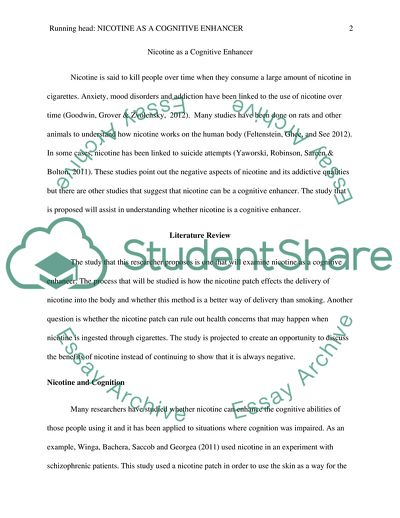Cite this document
(Nicotine as a Cognitive Enhancer Research Proposal Example | Topics and Well Written Essays - 2000 words, n.d.)
Nicotine as a Cognitive Enhancer Research Proposal Example | Topics and Well Written Essays - 2000 words. https://studentshare.org/psychology/1768114-is-nocotine-a-cognitive-enhancer
Nicotine as a Cognitive Enhancer Research Proposal Example | Topics and Well Written Essays - 2000 words. https://studentshare.org/psychology/1768114-is-nocotine-a-cognitive-enhancer
(Nicotine As a Cognitive Enhancer Research Proposal Example | Topics and Well Written Essays - 2000 Words)
Nicotine As a Cognitive Enhancer Research Proposal Example | Topics and Well Written Essays - 2000 Words. https://studentshare.org/psychology/1768114-is-nocotine-a-cognitive-enhancer.
Nicotine As a Cognitive Enhancer Research Proposal Example | Topics and Well Written Essays - 2000 Words. https://studentshare.org/psychology/1768114-is-nocotine-a-cognitive-enhancer.
“Nicotine As a Cognitive Enhancer Research Proposal Example | Topics and Well Written Essays - 2000 Words”. https://studentshare.org/psychology/1768114-is-nocotine-a-cognitive-enhancer.


